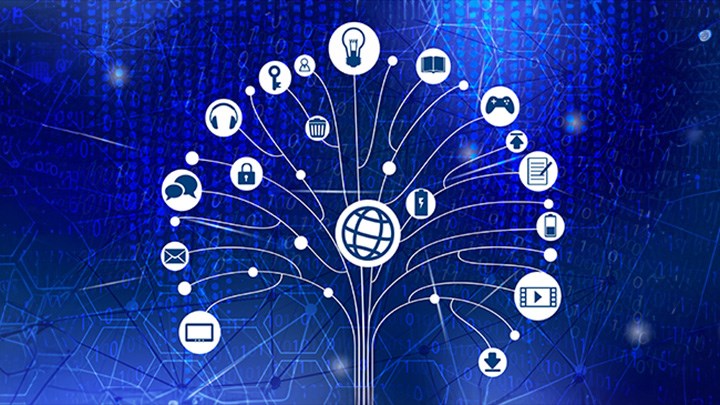Digitalisation in higher education

Digitalisation affects all people and society as a whole. It also gives us new opportunities to disseminate and validate knowledge, develop the content of our study programmes, refine teaching methods and meet the need for lifelong learning. Digitalisation in higher education is in full swing and affects all study programmes.
Key concepts
Digital transformation is when digitisation and digitalisation have become so widespread and developed that our previous patterns of behaviour and our ways of thinking about and understanding the world around us are fundamentally changed.
Digitisation is when analogue work is transferred into a digital environment. Physical paper is transformed into digital documents and information previously organised in binders and filing cabinets is sorted into digital folders or administrative systems.
Digitalisation is when ways of working and processes are changed with the help of new digital technology. Digital texts are evolving into something other than analogue – they can be multimodal and also contain audio or video files, interactive images and embedded links for further reading. The conditions for communication are changing, with news media allowing readers to communicate in real time with journalists and subject matter experts in comments sections.
The COVID-19 pandemic accelerated the technological development and digitalisation of society and higher education. It gave us new experiences, new terminology and new ways of thinking about and approaching work, education and learning.
Society is being transformed
As digitalisation represents a major transformation of society as a whole, it also affects people's values, attitudes and behaviours. It creates new conditions for social interaction and redefines the meaning of an inclusive society.
The labour market is also undergoing fundamental changes. Old professions are disappearing and new ones are emerging at a rapid pace. We are in a paradigm shift which, for the first time in history, means that understanding the effects of development is a greater challenge than developing the technology itself. Technological developments also bring with them a rapid increase in globalisation, making it increasingly difficult to make reasonable predictions about how these changes will affect cultural, economic and social life.
The role of higher education
Digital literacy is an essential condition for people to participate in and understand the society of today and tomorrow. Those who are not familiar with digital tools and services risk being marginalised. Higher education has an important role to play here.
Digitalisation affects the content of all programmes, as we need to address digitalisation issues regardless of the subject area in which we work. Examples of questions from different subject areas are:
- How can neuropsychology help in the development of digital tools and services to make them accessible and inclusive?
- How should medical records be written so that they are transparent to the patient via the 1177 healthcare information system?
- How are society's power structures affected by a changing digital media landscape?
- How can teachers prevent bullying and exclusion when social relations have moved online?
- How does economic policy work in a society with a data-driven economy?
- Higher education is also responsible for the research that helps us understand the impact of digitalisation on individuals and society – knowledge that enables us to meet the challenges of society.
In higher education, we educate and develop the skills of those who develop the digital solutions of tomorrow and those who will use these solutions in their professions. This means that higher education institutions are an important agent of change in a digitalised society. Higher education is responsible for the research that helps us understand the impact of digitalisation on individuals and society and provides a foundation for addressing societal challenges.
Digital literacy
Many attempts have been made to define the general competences that are important prerequisites for the personal and social development of individuals, for employment opportunities, and for participating in and keeping up with the development of a dynamic and rapidly changing society. John Dewey did so already in the late 19th and early 20th century when he concluded that the production of knowledge in science was both broad and rapid. Thus, knowledge should be perceived as something preliminary that can soon be replaced by new knowledge. So what knowledge is important and sustainable?
Digital competence is one of the EU's eight key competences for lifelong learning. It means being able to use digital tools and services, search for information and communicate through digital channels. Digital literacy is a broader concept that encompasses several of the EU's competences and relates to
- reading and navigating multimodal texts
- media and information literacy
- communication, collaboration and participation
- digital identity, health and safety: being able to address the challenges and risks that can arise in digital environments, such as privacy issues and cybersecurity
- understanding and reflecting on the ethical and legal aspects of digital use
- interculturality and social understanding
- critical thinking and ability to evaluate
- readiness to face changes in working life
- digital creativity and innovation
Both concepts, digital competence and digital literacy, are continuously changing at pace with societal developments and could be described as an ongoing process within the individual. The different concepts of knowledge and skills related to digital technologies reflect a very changing landscape.
Getting started with the integration of digitalisation
We have provided some suggestions on how to go about integrating digitalisation into your programme. You can find both information and support materials on the How to integrate perspectives in your programme page.
